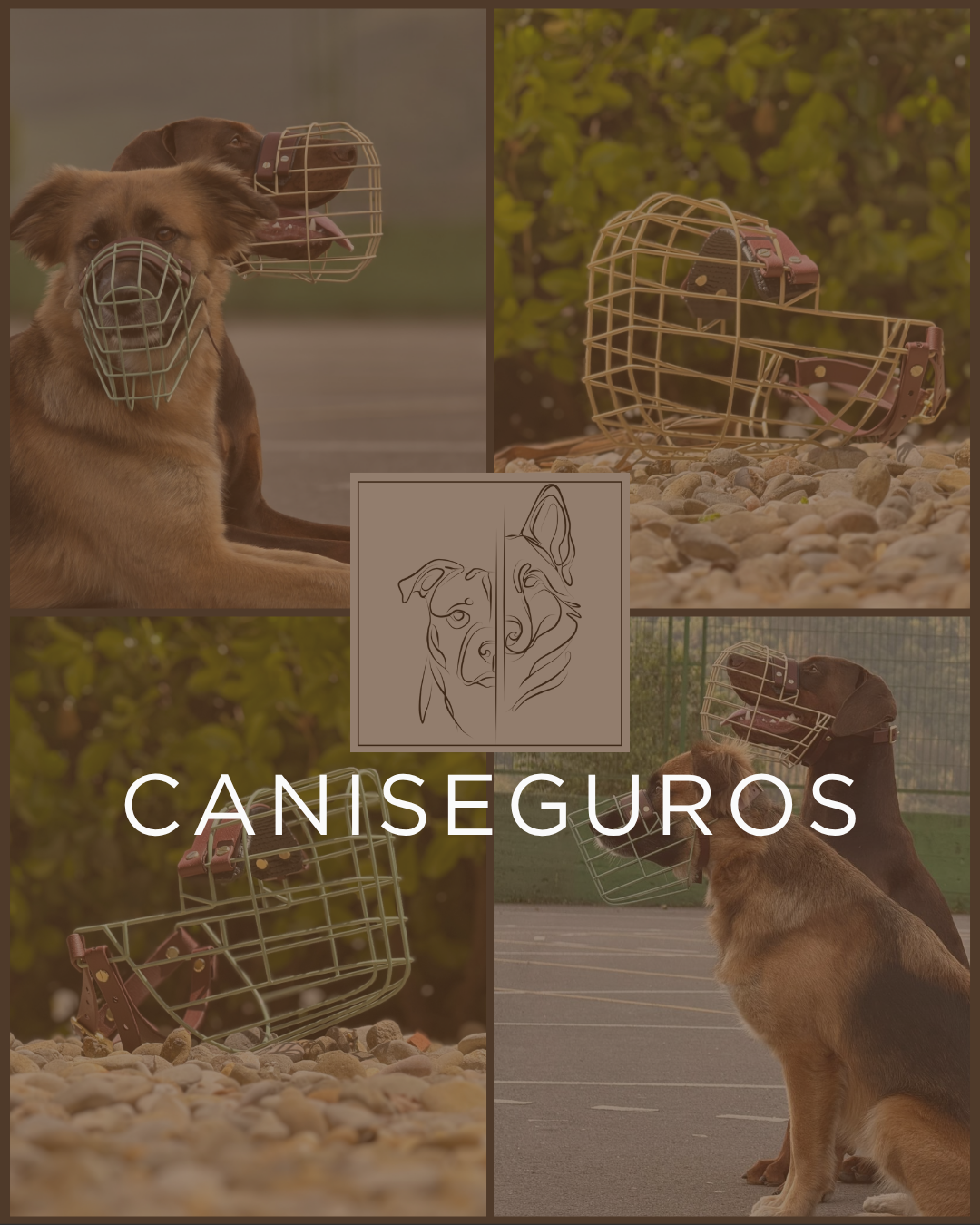Why a Muzzle? And When Is It Needed?

In our society, muzzles unfortunately have a bad reputation. Many people associate a dog wearing a muzzle with aggression, finding them unattractive and intimidating. But there's more to the story than black and white! There are many reasons beyond the stereotype of a "wildly aggressive dog biting at everything" for why a dog might wear a muzzle. Let's explore some of these situations:
1. At the Veterinarian
Unfortunately, our dogs sometimes get sick, and visiting the veterinarian can be an incredibly stressful experience. Fear and pain during such visits can lead to unpredictable behavior, including attempts to bite. In these situations, a muzzle ensures the safety of everyone involved. A dog bite can cause serious injury, and it's not beneficial for the dog to experience the stress and consequences of biting someone. By using a muzzle, you protect not only the people around but also your dog from a negative experience.
2. Legal Requirements – Public Transport and Travel
Depending on where you live or travel, there may be laws requiring dogs to wear a muzzle in public spaces. These regulations might be based on the dog's breed or weight. It would be a shame to miss out on visiting beautiful places just because your dog isn't accustomed to wearing a muzzle. A muzzle makes it possible to enjoy adventures and collect new experiences together, rather than being stuck at home. Similarly, public transport often requires dogs to wear muzzles. This isn't just to protect other passengers but also to create a peaceful, stress-free environment for everyone. When traveling or on vacation, a muzzle can prevent difficult situations and ensure that your dog is welcome in more places. Training your dog to wear a muzzle in advance can save stress and promote flexibility, making outings smoother and safer.
3. Poison Bait and Ingestion Protection
Sadly, there are individuals who deliberately leave poison bait to harm dogs. This is a subject close to our hearts, as we've experienced the heartbreak of losing a dog to poisoning. No matter how well-trained a dog is, these traps—disguised as irresistible treats laced with poison—can tempt even the most disciplined canine. Additionally, some dogs, lovingly nicknamed "vacuum cleaners," have a tendency to eat anything and everything they come across. This behavior can be extremely dangerous, sometimes leading to emergency surgeries to remove foreign objects. Training can help curb this behavior, but while working on it, a muzzle is a valuable tool to keep your dog safe.
4. Conflicts with Other Dogs
Some dogs develop hostility towards other dogs due to bad experiences, genetics, or lack of socialization. A muzzle can be a helpful tool to reintroduce your dog to social situations safely, ensuring no one gets hurt. For example, our two dogs don't always get along perfectly, but with muzzles, they can still enjoy off-leash time and controlled interactions. A muzzle also prevents accidents caused by overly friendly dogs, often called "he-doesn't-bite types," that approach without warning. In one case, our muzzled dogs only grazed the fur of another dog that got too close instead of causing serious harm. Such tools have saved lives and prevented injuries in countless situations.
5. Training and Rehabilitation
Yes, some dogs can be dangerous, potentially biting people or other animals for various reasons—fear, pain, or behavioral issues due to their past. Stories of tragic incidents involving aggressive dogs are sadly not uncommon. For dogs with behavioral challenges, a muzzle can be a lifesaving tool, providing protection for trainers, handlers, and the public while allowing work to address the underlying problem. A muzzle doesn't just protect people; it also gives the dog a chance to succeed. Using a muzzle shows responsibility and commitment to the safety of both the dog and those around them.
Conclusion The right muzzle can open doors to safer, happier experiences for you and your dog. Whether it's for legal requirements, safety during veterinary visits, protection against poison, or helping a reactive dog navigate the world, a muzzle is a tool of care and responsibility—not a sign of failure. By using a muzzle, you ensure a safer, more harmonious relationship between your dog and its environment.